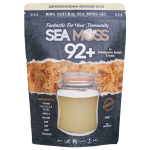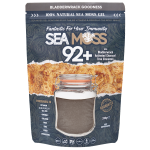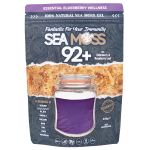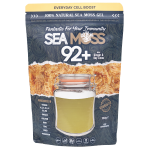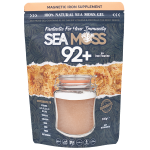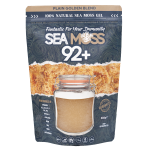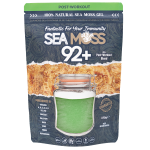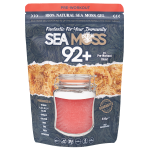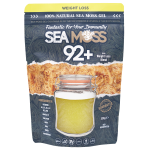STOMACH ULCERS
STOMACH ULCERS

Stomach ulcers, or peptic ulcers, are sores in the stomach, oesophagus, or small intestine that disrupt the digestive system. They result from damage to the protective stomach lining caused by Helicobacter pylori infection or certain medications.
Symptoms include abdominal pain, heartburn, indigestion, and fatigue. Medical treatments involve antibiotics and proton pump inhibitors, while natural remedies can offer support.
Foods and herbs like cranberries, ginger tea, and liquorice tea provide benefits. Vitamins and minerals such as glutamine, vitamin A, vitamin B, and vitamin C aid in healing.
Description
Stomach ulcers, also known as gastric ulcers, are open sores that develop on the lining of the stomach. These ulcers occur when the protective layer of mucus in the stomach is compromised, allowing stomach acid to erode the tissues.
The primary cause of stomach ulcers is infection with Helicobacter pylori bacteria, which can weaken the protective lining. Other factors that contribute to ulcer development include long-term use of nonsteroidal anti-inflammatory drugs (NSAIDs), excessive alcohol consumption, smoking, and stress.
Symptoms of stomach ulcers may include abdominal pain, bloating, heartburn, nausea, and loss of appetite. Treatment options involve a combination of medications to reduce stomach acid, antibiotics to eradicate H. pylori infection, and lifestyle modifications such as avoiding irritants and adopting a healthy diet.
Stomach ulcers, also known as gastric ulcers, can manifest with a variety of symptoms, which may include:
- Burning Sensation: A burning or gnawing pain in the upper abdomen is a common symptom of stomach ulcers. This discomfort is often described as a "hunger-like" pain.
- Upper Abdominal Pain: Pain or discomfort typically occurs in the upper abdomen, between the chest and belly button.
- Chest Pain: Some individuals with stomach ulcers may experience chest pain, which can be mistaken for heart-related issues. It's essential to differentiate between the two, as the causes and treatments are different.
- Heartburn: Heartburn is characterised by a burning sensation in the chest or throat and can be associated with stomach ulcers.
- Excess Gas: Experiencing bloating and excess gas may be a symptom of a stomach ulcer, although it can also be attributed to various other digestive conditions.
- Indigestion: Symptoms of indigestion, such as feeling overly full, discomfort, or early satiety, can occur with stomach ulcers.
- Nausea: Nausea, which may or may not lead to vomiting, can be a symptom of stomach ulcers. In some cases, vomiting may contain blood.
- Fatigue: Chronic stomach ulcers can lead to fatigue and weakness due to blood loss and malabsorption of nutrients.
Different types of stomach ulcer include:
- Gastric Ulcers: Gastric ulcers are ulcers that form in the lining of the stomach. They are the most common type of stomach ulcer. Gastric ulcers can develop due to the erosion of the protective mucus layer that lines the stomach, allowing stomach acid to come into direct contact with the stomach lining, leading to inflammation and ulcer formation.
- Duodenal Ulcers: Duodenal ulcers are ulcers that occur in the upper part of the small intestine called the duodenum. These ulcers are more prevalent than gastric ulcers. Duodenal ulcers are primarily caused by the excessive production of stomach acid, which irritates and damages the duodenal lining.
Stomach ulcers can be further classified based on their underlying cause:
- Helicobacter pylori (H. pylori) Infection: H. pylori is a type of bacteria that can infect the stomach lining and weaken its protective barriers, leading to ulcer formation. H. pylori infection is a common cause of stomach ulcers.
- Non-Steroidal Anti-Inflammatory Drugs (NSAIDs): Frequent use of NSAIDs, such as aspirin, ibuprofen, and naproxen, can irritate the stomach lining and increase the risk of developing ulcers.
- Stress Ulcers: These ulcers are associated with severe physical stress, such as major surgery, trauma, or critical illness, and are commonly found in hospitalised patients.
- Zollinger-Ellison Syndrome: This rare condition involves the formation of multiple ulcers due to the excessive production of stomach acid, often caused by tumours in the pancreas or duodenum.
- Erosive Esophagitis: In some cases, stomach acid can flow backward into the oesophagus, causing irritation and ulceration, a condition known as erosive esophagitis.
Stomach ulcers can be caused by various factors that lead to the deterioration of the protective lining in the stomach. Some common causes and contributing factors include:
- Helicobacter pylori (H. pylori) Infection: This bacterium is a common cause of stomach ulcers. H. pylori can weaken the stomach's protective mucous layer and allow stomach acid to damage the lining.
- Frequent Use of Nonsteroidal Anti-Inflammatory Drugs (NSAIDs): Regular and prolonged use of NSAIDs like ibuprofen, aspirin, and naproxen can irritate the stomach lining, potentially leading to the development of ulcers.
- High-Dose Aspirin: Taking high doses of aspirin, particularly for an extended period, can increase the risk of stomach ulcers.
- Excessive Alcohol Consumption: Heavy alcohol use can irritate the stomach lining and make it more susceptible to ulcer formation.
- Smoking: Smoking has been associated with an increased risk of developing stomach ulcers.
- Stress: While stress itself doesn't directly cause ulcers, it can exacerbate existing ulcers or contribute to their symptoms.
- Family History: A family history of stomach ulcers may increase an individual's susceptibility to developing them.
- Other Health Conditions: Certain medical conditions, such as Zollinger-Ellison syndrome, where the stomach produces excess acid, can lead to ulcer formation.
- Radiation Therapy: In some cases, radiation therapy used to treat cancer in the abdomen may lead to the development of stomach ulcers.
The treatment of stomach ulcers can vary depending on the underlying cause. Here are some common medical treatments for stomach ulcers:
- Antibiotics: If the ulcer is caused by an H. pylori infection, a course of antibiotics is typically prescribed to eradicate the bacteria. This treatment is often combined with acid-suppressing medications to promote healing.
- Proton Pump Inhibitors (PPIs): Medications such as Esomeprazole (Nexium), Dexlansoprazole (Dexilant), Lansoprazole (Prevacid), Omeprazole (Prilosec, Zegerid), Pantoprazole (Protonix), and Rabeprazole (AcipHex) are PPIs that reduce stomach acid production. These drugs can help relieve symptoms, promote ulcer healing, and prevent recurrence.
- Histamine-2 (H2) Blockers: Medications like Ranitidine (Zantac) and Famotidine (Pepcid) are H2 blockers that reduce stomach acid production. They may be used to manage and prevent ulcers in some cases.
- Antacids: Over-the-counter antacids like Maalox, Mylanta, and Tums can help neutralise stomach acid temporarily and provide short-term relief from ulcer-related pain and discomfort.
- Cytoprotective Agents: Medications like sucralfate (Carafate) may be prescribed to coat and protect the stomach lining, promoting ulcer healing.
- Lifestyle Changes: In addition to medications, lifestyle modifications may be recommended to reduce factors that can exacerbate ulcers. These changes may include avoiding NSAIDs, reducing alcohol intake, quitting smoking, and managing stress.
- Follow-Up Endoscopy: After treatment, a follow-up endoscopy may be performed to confirm ulcer healing and ensure that the underlying cause, such as H. pylori infection, has been successfully treated.
Natural treatments and lifestyle modifications can complement medical interventions for managing stomach ulcers. Here are some natural approaches and practices that may help:
- Dietary Changes: Follow a balanced diet that includes plenty of fruits, vegetables, whole grains, and lean proteins. Avoid or limit foods that can irritate the stomach lining, such as spicy foods, caffeine, alcohol, and acidic foods.
- Probiotics: Probiotic-rich foods like yoghurt and kefir can help promote a healthy balance of gut bacteria, potentially aiding in digestion and supporting the stomach lining.
- Aloe Vera: Aloe vera juice or gel may have soothing properties for the stomach lining. Consult with a healthcare provider before using aloe vera as a remedy.
- Licorice Root: Deglycyrrhizinated licorice (DGL) supplements or licorice root tea may help relieve stomach discomfort and protect the lining. DGL is a safer option as it has had the compound associated with high blood pressure (glycyrrhizin) removed.
- Honey: Honey has antibacterial properties and can help soothe a sore or irritated throat and stomach lining. Manuka honey, in particular, is known for its potential healing properties.
- Chamomile Tea: Chamomile tea may have anti-inflammatory and soothing effects on the digestive tract. It can be consumed to ease stomach discomfort.
- Slippery Elm: Slippery elm supplements or teas can form a protective coating along the digestive tract, potentially reducing irritation and discomfort.
- Mastic Gum: Mastic gum, derived from the resin of the mastic tree, has been studied for its potential ulcer-healing properties.
- Lifestyle Management: Stress management techniques like meditation, deep breathing exercises, and yoga can help reduce stress, which can exacerbate ulcer symptoms.
- Hydration: Staying well-hydrated can support overall digestive health and promote the healing of stomach ulcers.



